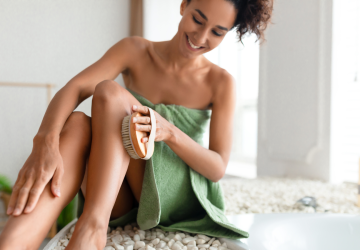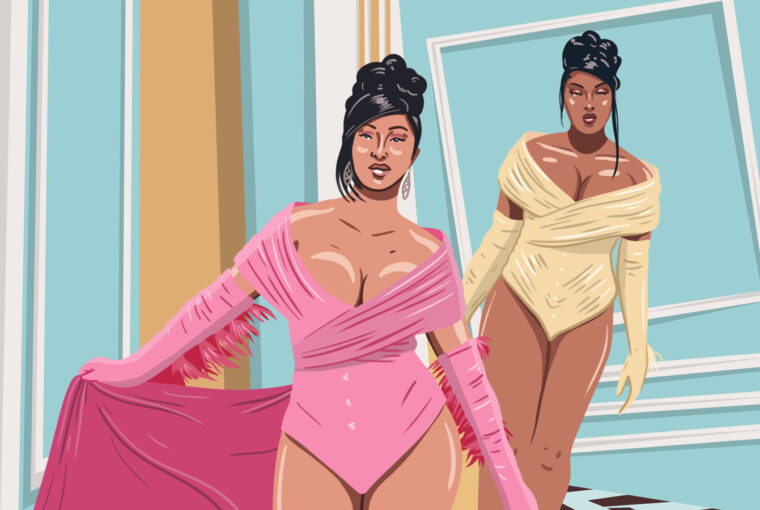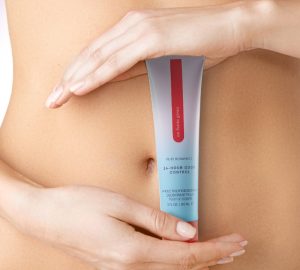Women And Pleasure
Pleasure is becoming less of a taboo topic and here’s why.
For far too long, women and their bodies have been policed. Policed by men, politics and religion.
Women have said, enough is enough! Cardi B and Megan Thee Stallion have certainly made headlines with the release of their new song, “WAP,” which in the radio edited version is referred to as wet and gushy. Controversy has erupted around the sexually explicit lyrics. Of course, this was to be expected if you’ve listened to the song or read the lyrics. The conversation here shouldn’t be why these two artists put out a sexually explicit song, or how dare they talk about their bodies like that (with a face in shock or awe). The conversation here should be rooted in dispelling an oppressive societal structure that has been policing women’s bodies for hundreds of years.
Here are a few realities that we need to acknowledge:
Reality 1: Talking about sexual desires in music is not new.
Artists have been expressing their feelings about romantic and sexual relationships for quite some time. However, there is a double standard that continues to persist. Male artists have been talking about their sexual desires explicitly and exploiting women for decades. Summer Walker said, “Girls need love too.” However, they are criticized for asking for the love they need and want.
Reality 2: Women are policed by respectability politics.
In present-day, this looks like telling women how to dress, talk, speak, act, etc. in various situations. This phenomenon is also referred to as “respectability politics.” It also looks like a patriarchal, political system that tells women they need to be on birth control (more specifically, a long acting reversible contraceptive, like Mirena) because they are not responsible enough to take pregnancy preventative measures on their own. This also looks like a society that criticizes women for making her own reproductive decisions, like having an abortion. We live in a society that judges women for wearing fitted clothes, thong bikinis, or for revealing “too much” rather than celebrating all body shapes, fashion styles, and self-esteem. Young girls learn at a very early age that their body image is based on the approval of others. How does this boost self-esteem and confidence?
Reality 3: The media provides more sexuality education than parents.
This one might be an ouch, especially if you are reading this as a parent. However, this is a reality for many youth and emerging adults. There is a lack of sexuality education in schools, especially now that many schools have gone virtual due to COVID-19. Sexuality education is considered an elective in higher education, so then, where do people learn about sex? More often than not, they learn from the media, pornography, and personal experience. We have to continue to advocate for sexuality messages early in life, of course, they should be age appropriate. The bottom line here is that these messages aren’t happening and then parents are upset when their child is getting more information from the media than they are from home.
Reality 4: There is a lack of pleasure focused messaging for women.
Time and time again, women are blindsided. The only messages they receive about pleasure involve them pleasuring a partner. Drake said, “Pleasure is not meant for one side,” and I couldn’t agree more. Pleasure is not a dirty word. There is so much shame and guilt from sexual socialization messages that sex is inherently bad. That one’s body should be hidden. That one’s sexuality should not be discussed. This has long lasting effects on women and these messages are very difficult to unlearn.
Now let’s talk about “WAP.” The song is coming from two women, discussing their own desires in a self-affirming way. This song celebrates the individuality of these two women and the pleasurable experiences that they enjoy. This song is not and will not be for everyone, and that is okay. Their desires may not be your desires. Their form of expression may differ from yours. But for the women and femmes who identify with this song, who enjoy the lyrics, who are liberated from patriarchal oppression toward women and pleasure, then go ahead, celebrate. Be empowered. The more women feel empowered to discuss their needs, the more the idea of pleasure becomes less taboo. Pleasure becomes a part of sexual education and communication, as it should be. And here’s one more thing, pleasure is defined differently depending on the person. Pleasurable experiences do not have to involve penetration, or even a partner. Pleasure can mean building intimacy for some and exploration for others. So, try some new products, new positions, explore BDSM, talk about your desires with your partner (if you have a partner), and stop judging women for wanting to experience pleasure.
10 Reminders for Building Queer & Trans-Inclusive (Sex) Education
Your Dating App Download
Ashley Townes
PhD, MPH, Sexual Health ResearcherDr. Townes has experience working as a Community Health Educator and Disease Intervention Specialist in Cincinnati and the surrounding areas. She has worked on several initiatives related to the dissemination of national HIV prevention and care campaign materials tailored for African Americans, Hispanic/Latinx, and transgender women of color. Dr. Townes has taught collegiate-level Human Sexuality courses, served as an Epidemiologist at the Ohio Department of Health, and currently works as a sexual health researcher in Atlanta, GA.
Ashley’s research background includes work on the sexual experiences of African American/Black women accessing health information and utilizing sexual health services. In 2018, she received grant funding from the Patty Brisben Foundation for Women’s Sexual Health to translate sexual health research data into educational materials. Her career interests are aimed at providing quality sexual education and working towards health equity.









